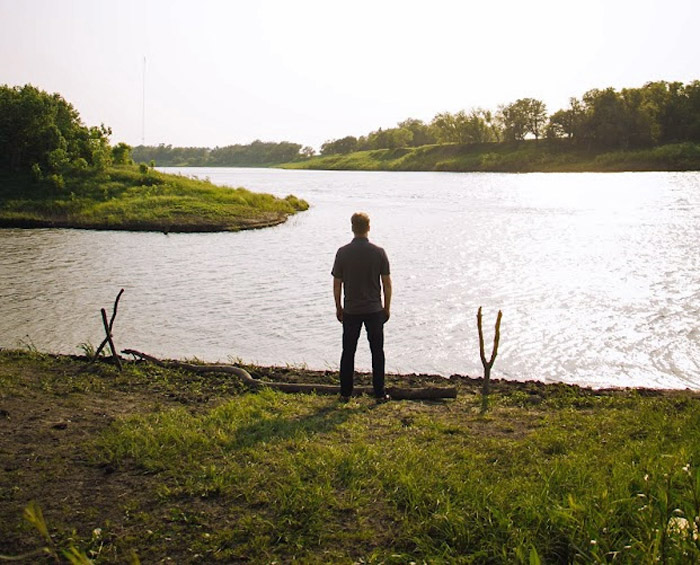This week it is 149 years since the first Mennonites arrived in Manitoba. For the 150th anniversary Mennonite Heritage Village (MHV) plans to re-enact their arrival at the Red River and then trek with a red river ox cart across the prairie to our museum in Steinbach. There was no village for those first settlers. Fortunately, the Metis had built immigration sheds a few miles from the river that would serve as temporary shelters until they were ready to establish their villages. I enjoy setting up a campsite, but what a sight it would be to see those first Mennonites setting up their semlin sodhouses in the open prairie.
I have a friend who works at another museum. He is astonished how many people just want to talk about their complaints about the present and their fears for the future. It doesn’t surprise me too much that this conversation happens in a museum. Museums are created for our well-being and are places of reflection on the on-going preservation of our communities. As museum expert John Falk shares, “there are precious few two-hour experiences that create such lasting memories! Museum experiences are clearly special events in people’s lives – they must be, or they would not be so salient and so memorable.” He goes on to say that as humans we pay attention to what could be important for our survival, “one of the distinguishing features of human conscious awareness has been the ability to size up the situation, and based upon similar, past situations, envision how to act in the future.” Consciously or unconsciously, this is one of the reasons people visit museums and bring their children to museums.
So, it does not surprise me that my museum friend has visitors looking for a couch and openly talking about their fears with him daily. What does concern me though is the discouragement. Visitors are no longer wanting to learn about how the settlers before them overcame the big challenges of the day, instead they are coming to the museum feeling paralyzed. Their heads full of the problems and theories that they read and reread on the internet. Once again, we need to learn from the concrete experiences and actions our ancestors took to make their lives work. It is time that we get off the boat, step onto solid ground and build a village that will help us all survive and thrive again.




